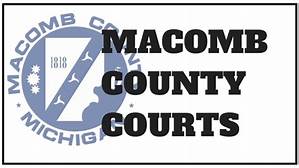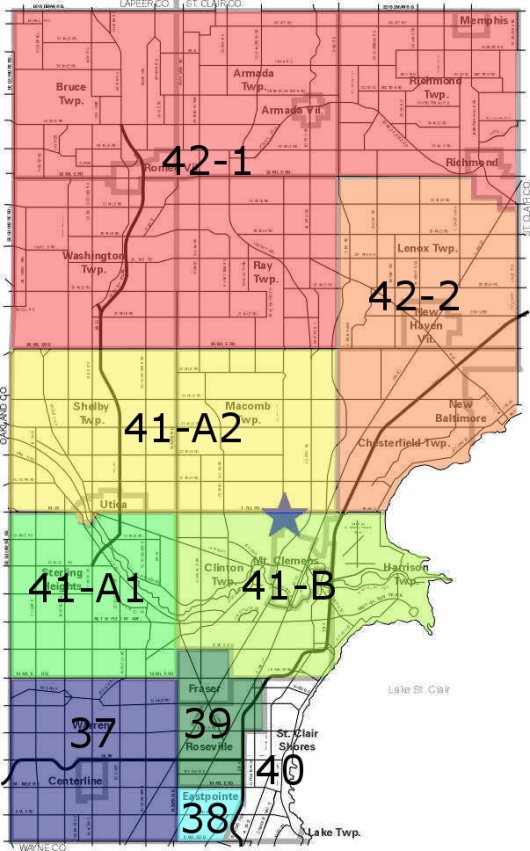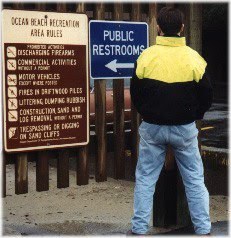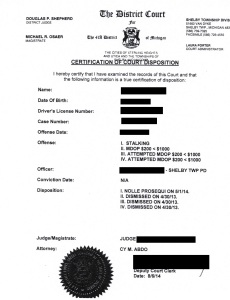Macomb County District Courts: Thousands of Misdemeanor Arrests Every Year in Macomb County
This feature article gives our followers the big picture on the topic of misdemeanors in Macomb County and is based upon our experience handling more than 10,000 criminal cases in Michigan. Misdemeanor cases are handled in the local district courts for each county. The district court system in Michigan is broken down based upon population. This map illustrates the jurisdictional picture of the 9 district courts located in Macomb County:
The list below contains links to the district courts located in Macomb County:
- 37th District: Warren, Centerline
- 38th District: Eastpointe
- 39th District: Roseville, Fraser
- 40th District: St. Clair Shores
- 41-A District: Sterling Heights
- 41-A District: Shelby Township, Macomb Township, Utica
- 41-B District: Clinton Township, Harrison Township, Mount Clemens
- 42-1 District: Romeo, Washington Township, Armada, Richmond, Ray Township
- 42-2 District: New Baltimore, Chesterfield Township, Lenox Township, New Haven
The Big 3 Misdemeanors and Other Prevalent Misdemeanors in Macomb County
In Michigan, each crime is classified as either misdemeanor or felony. The maximum term of incarceration determines whether a crime is classified as a misdemeanor or felony. A misdemeanor is defined as a crime that carries 1 year or less in jail. A felony is defined as a crime that carries more than 1 year, up to life, in prison. Based upon extensive experience by our Macomb County criminal defense lawyers the BIG THREE MISDEMEANOR OFFENSES in Macomb County are:
#2 OWI with BAC .08, OWI w/high BAC .17 or greater
#3 Retail Fraud 2nd Degree and 3rd Degree
These offenses are discussed in greater detail farther down in this article.
The following are other prevalent misdemeanors which are handled in the Macomb County District Courts :
- Assault & Battery
- Driving While License Suspended-DWLS
- Leave Scene of Accident
- Disorderly Conduct
- Malicious Destruction of Property-MDOP
Each of the above offenses constitutes a crime. Almost every misdemeanor can be elevated to a felony offense depending upon certain extenuating circumstances. Upon conviction for a felony or misdemeanor, the criminal offense will appear on a person’s permanent public criminal history with the Michigan State Police and the FBI. With some exceptions, most misdemeanors and felonies are eligible for expungement. Michigan criminal records can be found on the Michigan State Police ICHAT website.
Certain misdemeanor offenses may be more prevalent in a particular geographical area because of specific police activity. For example the following criminal offenses are targeted by the police and thus more prevalent in these areas:
- Detroit, Offer to Engage Prostitute: The Detroit Police have an ongoing sting operation to thwart illegal sexual activity.
- Romulus, Airport Checkpoint Violations: The 34th District Court in Romulus has jurisdiction over checkpoint violations that occur at Detroit’s Metropolitan Airport.
- Royal Oak, Disorderly Conduct: Disorderly conduct (noise, public intoxication) is a common offense in the 44th District Court in Royal Oak.
Getting a Misdemeanor Case Under Control
According to the American Bar Association, PLEA BARGAINING ACCOUNTS FOR 95% OF ALL CONVICTIONS IN THE STATE COURTS. Knowing that the vast majority of all criminal cases are resolved by a plea bargain, and not a trial, means that you need a Macomb County criminal defense lawyer that has the local contacts and experience to get the best resolution for your misdemeanor or criminal ordinance violation.
A misdemeanor is a serious mater. Even a minor ordinance violation for an offense such as theft or assault can have devastating consequences. Fortunately, there are distinct provisions of law in Michigan designated to obtain a dismissal of a misdemeanor without going to trial. These provisions of law afford an individual a chance to get a criminal charge dropped after completing a period of probation and complying with the terms of probation. The following is a list of provisions used extensively in every Macomb County Court with links for expanded explanations:
- HYTA: HYTA status enables youthful offenders (age 18 but under age 26) to get a criminal offense (felony or misdemeanor) dismissed and sealed.
- Dismissal of Drug Crimes: First time drug offenses involving use or possession can be dismissed pursuant to application of MCL 333.7411.
- Domestic Violence: A domestic violence charge can be dismissed pursuant to MCL 769.4a.
- Delayed sentence with dismissal: MCL 771.1 is a special provision of law that can be utilized to get a criminal case deferred and dismissed.
All of the above provisions of law are subject to eligibility and the judge’s approval. Getting a criminal conviction deferred and dismissed pursuant to MCL 771.1 requires the prosecutor’s approval and the approval of the court. Getting HYTA for offenders that are 21 but under age 26, also requires the prosecutor’s approval. The victim of any crime may also object to a favorable plea bargain.
Penalties and Consequences for Misdemeanors
The presiding district court judge has vast power to sentence an individual following a conviction for a misdemeanor. Getting an experienced local criminal defense attorney can be the best decision that you can make if you are charged with a misdemeanor. There may be ways to avoid a criminal conviction altogether, have the offense reduced, and avoid many of the penalties and consequences as listed below.
Partial list of potential penalties and consequences for a misdemeanor convictions are as follows:
- Jail: Up to 1 year incarceration.
- Fine, court costs and cost of prosecution in the judge’s discretion.
- No limit on restitution for any loss, injury or damage to victim(s) or third parties such as insurance companies.
- Probation for up to two (2) years.
- Probation for up to five (5) years for stalking.
- Substance abuse counseling, attendance of AA meetings.
- GPS monitoring (in cases such as stalking).
- Loss of right to obtain a concealed pistol license (CPL) for a period of 3 years or 8 years, depending upon the offense.
- Suspension or revocation of driver’s license for traffic misdemeanors and OWI.
- Points added to your driving record for traffic misdemeanors and OWI.
- No contact order as a bond condition and during the entire period of probation.
- Alcohol and drug test testing as a bond condition and during the entire period of probation.
- Travel restrictions as a bond condition and during entire period of probation.
- Reporting to a probation officer at intervals to be determined by the judge.
- Deportation for non-US citizens upon conviction of misdemeanors that constitute crimes of moral turpitude.
Domestic Violence Cases Can Be Dismissed
Your life can turn upside down very fast if you get charged with domestic violence by your spouse or lover. Merely pushing or shoving someone to get out of the way can be grounds to support a domestic violence case. Hire a local Macomb County domestic violence lawyer to find our how you can get a domestic violence case dismissed. There are also other serious crimes that can be pursued against an individual accused of domestic violence including:
- Assault by strangulation or suffocation: Maximum Penalty: 10 years in prison.
- Assault with a dangerous weapon: Maximum Penalty: 4 years in prison.
- Interfering with a crime report: It is a crime to try to stop someone from calling the police or filing a criminal report.
Fortunately, domestic violence cases, inlcuding serious felony crimes associated with domestic violence, can be favorable resolved even when the State has picked up the charges and there are underlying policy reasons that make it difficult to get sex crimes and domestic violence crimes dismissed. Here are a just a few ways that we have resolved domestic violence cases to get our clients out of the court system and back to normal:
- Making a motion to dismiss if the victim fails to appear for trial.
- Getting a deferral under MCL 769.4a which includes dismissal after 1 year of probation.
- Negotiating a reduction to a non-violent offense to protect gun rights.
Operating While Intoxicated: Over 2,000 OWI Arrests Every Year in Macomb County
As we have said, Operating while Intoxicated (OWI) is always one of the most prevalent crimes on every district court docket. The Michigan Drunk Driving Audit is a website which compiles detailed statistics regarding drunk cases based upon information obtained from police agencies and courts. Our research indicates that there are several thousand arrests in Michigan for misdemeanor offenses. Drunk Driving cases account for roughly 10,000 arrests each year in the Counties of Macomb, Oakland and Wayne.
There are many legal and technical aspects to a drunk driving case. Here are few frequently asked DUI questions:
- Can the case be dismissed?
- Can the charge be reduced?
- Am I going to jail?
- What will happen to my license?
- Why did they destroy my license?
- Was I required to give a blood test or take a breathalyzer test?
- Can an attorney get the police in-car video and body-cam video?
Retail Fraud/Shoplifting Can be Dismissed in Macomb County
Retail fraud is the name given for the crime of shoplifting in Michigan and it is always one of the most prevalent crimes that we see in every courtroom in Macomb County. The offense of retail fraud is committed by taking something from a retail establishment with the intent to steal. The crime is accomplished by the intentional concealment of goods, changing a price tag/package or by attempting to defeat the scanning process. Retail fraud is a serious crime and constitutes a crime of moral turpitude that will result in deportation for those that do not have United States citizenship. The penalty for retail fraud depends upon the value of the goods:
- Retail Fraud First Degree (value of goods $1,000.00 or more): Felony punishable by up to 5 years imprisonment.
- Retail Fraud Second Degree (value of goods $200.00 up to $1,000.00): Misdemeanor punishable by up to 1 year in jail.
- Retail Fraud Third Degree (value of goods up to $200.00): Misdemeanor punishable by up to 93 days in jail.
Virtually every major retailer (Kohl’s, Target, Walmart, Meijer, Sam’s Club) utilizes loss prevention employees to deter shoplifting and apprehend shoplifters. Once charged with this crime, an attorney’s services are crucial to find a way to avoid a conviction in the criminal justice system. First offenders almost always qualify for a plea bargain to get the matter deferred and dismissed. The terms of the probation can differ depending the court and whether the judge believes the offender needs to be supervised or non-supervised. Non US Citizens need to hire a lawyer to avoid a “theft” related conviction altogether to avoid deportation.
Traffic Misdemeanors Can Carry up to 6 Points and Jail
Not all traffic offenses are created equal. Traffic offenses are classified as civil infractions or misdemeanors. Civil infractions, such as speeding, are considered less serious. Misdemeanor traffic offenses often carry greater points (6 in many cases), possible jail and appear on a person’s criminal record. In Michigan, the following offenses are misdemeanors:
Contact an expereiWe look for ways to reduce the impact of a traffic misdemeanors by scheduling a pretrial conference with the prosecutor to seek meaningful reductions. This often can result in a misdemeanor being reduced to a civil infraction thereby saving a person from having a criminal record. In addition, getting a traffic misdemeanor reduced to a lower offense can also result in meaningful reduction in points and insurance premium savings. It is a wise investment to fight every traffic ticket!
 Michigan Criminal Lawyer Blog
Michigan Criminal Lawyer Blog





